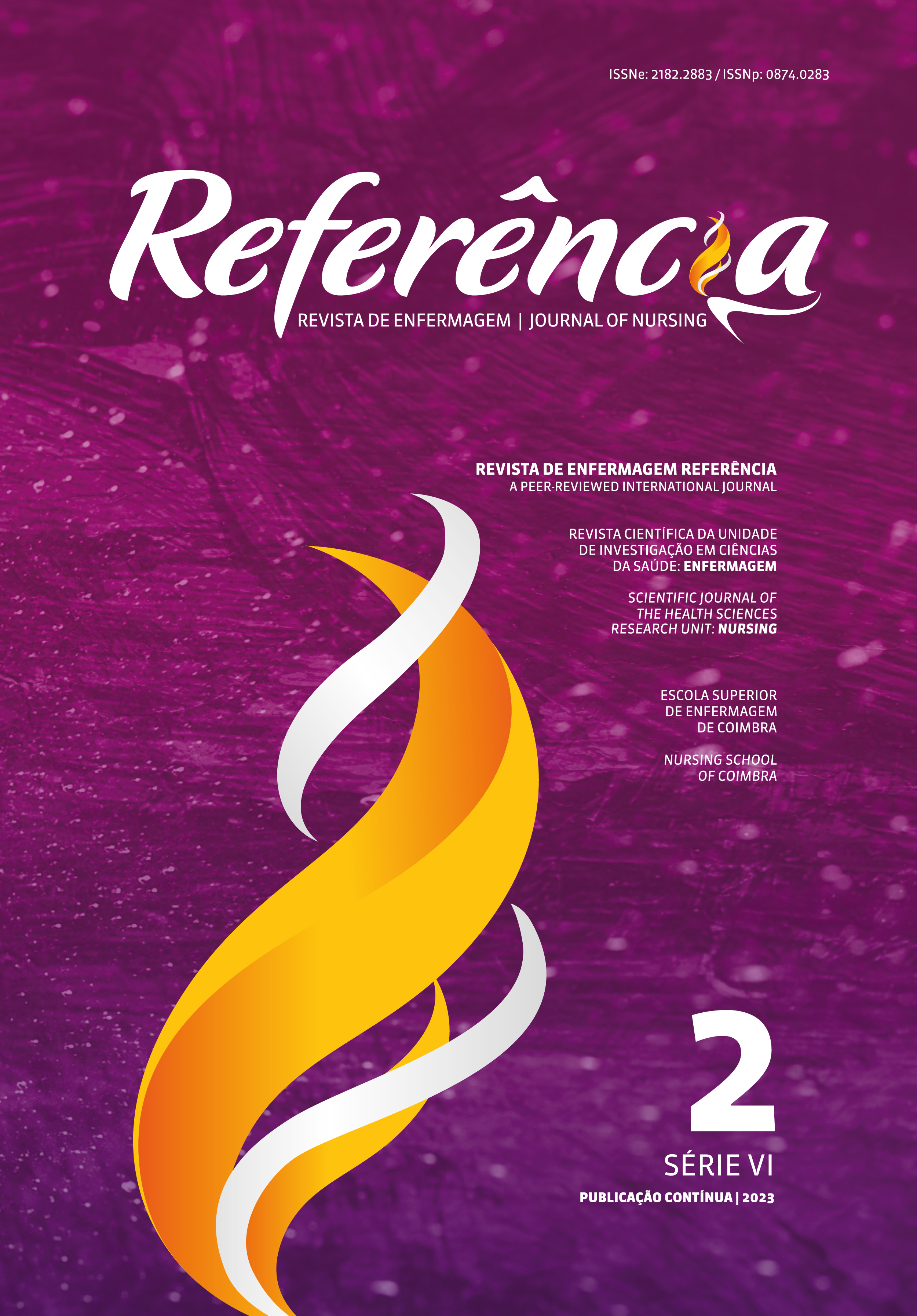Lifelong learning in nursing: Modern challenges
DOI:
https://doi.org/10.12707/RVI22055Keywords:
learning, nursing, education, nursing, education, continuing, information technologyAbstract
Background: Education is a process that must be continuously developed throughout professional life.
Objective: To reflect on the challenges of lifelong learning in modern nursing. Main topics under analysis: The advancement of nursing practice depends on integrating professional, personal, cultural, and socioeconomic knowledge. The fundamental changes occurring in theoretical and practical knowledge require more complex care actions and services, which demand that nurses learn to adapt continuously to new technologies. Different generations with distinctive characteristics and interests undergo the learning and educational process. Nurses must actively manage their knowledge, skills, and attitudes and harmonize professional demands and challenges with quality of life.
Conclusion: The innovative nursing professional combines technical and behavioral skills. The main challenge is the combination of work environment, social context, and educational strategies, which should stimulate learning success, allow safe care delivery to patients and communities, and contribute to universal health.
Downloads
References
Andrade, K., Cortez, E., Pereira, A., & Castro, J. (2020). A implantação do programa de educação permanente em saúde: Uma contribuição para o fortalecimento do SUS. Debates em Educação, 12(26), 97. https://doi.org/10.28998/2175-6600.2020v12n26p97-108
Bindon, S. (2017). Professional development strategies to enhance nurses’ knowledge and maintain safe practice. AORN Journal, 106(2), 99-110. https://doi.org/10.1016/j.aorn.2017.06.002
Departamento de Gestão da Educação na Saúde. (2018). Política nacio nal de educação permanente em saúde: O que se tem produzido para o seu fortalecimento. https://bvsms.saude.gov.br/bvs/publicacoes/politica_nacional_educacao_permanente_saude_fortalecimento.pdf
Butcher, D., & Bruce, A. (2015). Nurses and lifelong learning: Creating “makers and shapers” or “users and choosers”? Nursing Forum, 51(2), 97-104. https://doi.org/10.1111/nuf.12126
Cassiani, S., & Lira Neto, J. (2018). Nursing perspectives and the “nursing now” campaign. Revista Brasileira de Enfermagem, 71(5), 2351-2352. https://doi.org/10.1590/0034-7167.2018710501
Cassiani, S., Wilson, L., Mikael, S., Peña, L., Grajales, R., McCreary, L., Theus, L., Agudelo, M. C., Felix, A. S., Uriza, J. M., & Gutierrez, N. R. (2017). The situation of nursing education in Latin America and the Caribbean towards universal health. Revista Latino-Americana de Enfermagem, 25, e2913. https://doi.org/10.1590/1518-8345.2232.2913
Chakkaravarthy, K., Ibrahim, N., Mahmud, M., & Venkatasalu, M. (2018). Predictors for nurses and midwives’ readiness towards self-directed learning: An integrated review. Nurse Education Today, 69, 60-66. https://doi.org/10.1016/j.nedt.2018.06.030
Gamhewage, G., Mylonas, C., Mahmoud, M., & Stucke, O. (2022). Developing the first-ever global learning strategy to frame the future of learning for achieving public health goals. Journal of Oral Biology and Craniofacial Research, 12(1), 74-76. https://doi.org/10.1016/j.jobcr.2021.09.016
Haukedal, T., Reierson, I., Hedeman, H., & Bjørk, I. (2018). The impact of a new pedagogical intervention on nursing students’ knowledge acquisition in simulation-based learning: A quasi-experimental study. Nursing Research and Practice, 2018, 1-10. https://doi.org/10.1155/2018/7437386
International Labour Organization. (2019). ILO centenary declaration for the future of work, 2019. https://www.ilo.org/global/about-the-ilo/mission-and-objectives/centenary-declaration/lang--en/index.htm
Kaneko, R., & Lopes, M. (2019). Realistic health care simulation scenario: What is relevant for its design? Revista da Escola de Enfermagem da USP, 53, e03453. https://doi.org/10.1590/s1980-220x2018015703453
Mishima, S., Aiub, A., Rigato, A., Fortuna, C., Matumoto, S., Ogata, M., Silva, M. V., & Nogueira, A. C. (2015). Managers’ perspec on continuous health education in a region of São Paulo State. Revista da Escola de Enfermagem da USP, 49(4), 665-673. https://doi.org/10.1590/s0080-623420150000400018
Oliveira, J., Pires, D., Alvarez, Â., Sena, R., Medeiros, S., & Andrade, S. (2018). Trends in the job market of nurses in the view of managers. Revista Brasileira de Enfermagem, 71(1), 148-155. https://doi.org/10.1590/0034-7167-2016-0103
Oliveira, L., Díaz, L., Carbogim, F., Rodrigues, A., & Püschel, V. (2016). Effectiveness of teaching strategies on the development of critical thinking in undergraduate nursing students: A meta-analysis. Revista da Escola de Enfermagem da USP, 50(2), 355-364. https://doi.org/10.1590/s0080-623420160000200023
Peixoto, L., Gonçalves, L., Costa, T., Tavares, C., Cavalcanti, A., & Cortez, E. (2013). Educación permanente, continuada y de servicio: Desvelando sus conceptos. Enfermería Global, 12(29), 324-340. https://scielo.isciii.es/pdf/eg/v12n29/pt_revision1.pdf
Qalehsari, M., Khaghanizadeh, M., & Ebadi, A. (2017). Lifelong learning strategies in nursing: A systematic review. Electronic Physician, 9(10), 5541-5550. https://doi.org/10.19082/5541
Rouleau, G., Gagnon, M., Côté, J., Payne-Gagnon, J., Hudson, E., Bouix-Picasso, J., & Dubois, C. (2017). Effects of e-learning in a continuing education context on nursing care: A review of systematic qualitative, quantitative and mixed studies reviews (protocol). BMJ Open, 7(10), e018441. https://doi.org/10.1136/bmjopen-2017-018441
Rouleau, G., Gagnon, M.-P., Côté, J., Payne-Gagnon, J., Hudson, E., Dubois, C.-A., & Bouix-Picasso, J. (2019). Effects of e-learning in a continuing education context on nursing care: Systematic review of systematic qualitative, quantitative, and mixed-studies reviews. Journal of Medical Internet Research, 21(10), e15118. https://doi.org/10.2196/15118
Silva, G. (2020). Interprofessional education and faculty training in health. Revista de Enfermagem Referência, 4(1), 1-4. https://web.esenfc.pt/v02/pa/conteudos/downloadArtigo.php?id_ficheiro=2776&codigo=
World Health Organization (WHO). (2022). Learning Strategy. https://www.who.int/about/who-academy/learning-strategy

















